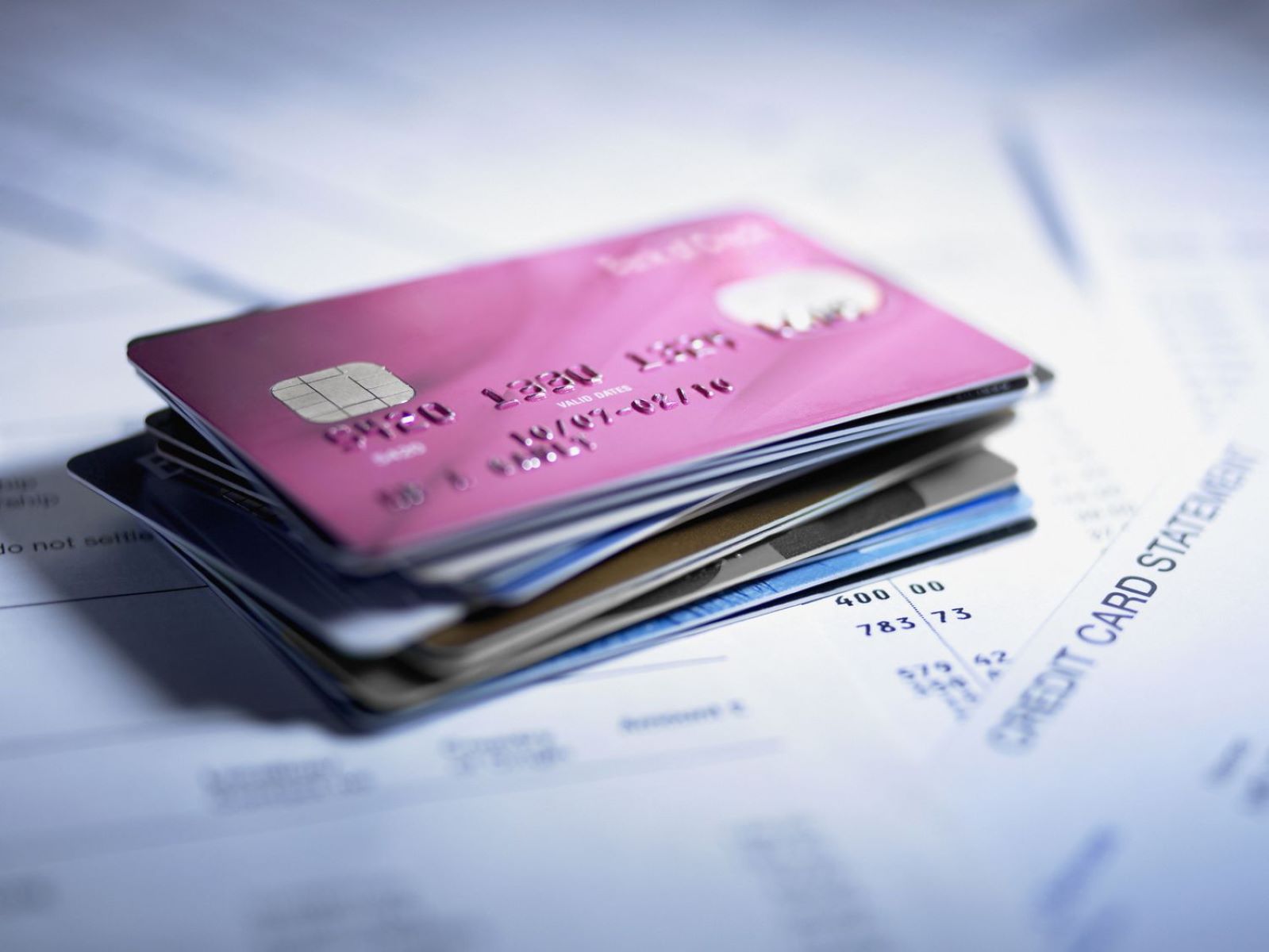Home>Finance>How To Get A Credit Card Under 18 Without Parental Consent


Finance
How To Get A Credit Card Under 18 Without Parental Consent
Modified: March 3, 2024
Discover how to obtain a credit card for teenagers without needing parental consent, covering the basics of finance for young individuals under 18.
(Many of the links in this article redirect to a specific reviewed product. Your purchase of these products through affiliate links helps to generate commission for LiveWell, at no extra cost. Learn more)
Table of Contents
Introduction
Getting a credit card can be an important step towards financial independence and responsible money management. However, for individuals under 18 years of age, obtaining a credit card without parental consent may seem like an impossible task. While most banks and financial institutions require applicants to be at least 18 years old to qualify for a credit card, there are some options available for minors to get a credit card legally.
In this article, we will explore how to navigate the process of getting a credit card under 18 without parental consent. We will discuss the legal requirements, research the available credit card options for minors, outline the application process, and provide tips on building credit responsibly. It’s important to note that obtaining a credit card as a minor comes with certain risks and limitations that need to be understood and managed effectively.
Before we dive into the details, it’s crucial to emphasize the importance of understanding and respecting financial responsibilities. While having a credit card can provide financial flexibility, it also requires discipline and a clear understanding of how credit works. Building good credit at a young age can set the foundation for a solid financial future, but it must be approached with caution and responsibility.
Now, let’s explore the steps involved in getting a credit card under 18 without parental consent and the factors to consider to make an informed decision.
Understanding the Legal Requirements
When it comes to getting a credit card as a minor, it’s essential to familiarize yourself with the legal requirements. The laws surrounding credit card issuance and usage for individuals under 18 vary from country to country and even from state to state. It’s crucial to research and understand the specific regulations in your jurisdiction.
In many cases, minors are not legally allowed to enter into a binding contract, which is the basis for most credit card agreements. As a result, most banks and financial institutions require applicants to be 18 years old or have a co-signer, usually a parent or guardian, to assume responsibility for the debt. However, there are some alternatives available for minors to obtain a credit card without parental consent.
One of the legal options is to apply for a “joint credit card” with a responsible adult. With a joint credit card, both parties are equally liable for the debt. This option allows a responsible adult, such as a sibling or a close relative, to help build the minor’s credit while maintaining control over the credit card account.
Another option available in some jurisdictions is the establishment of a “custodial account.” A custodial account is created by a parent or guardian on behalf of a minor, and the adult maintains control over the account until the minor reaches the legal age. While the minor can use the credit card associated with the custodial account, the adults will have ultimate responsibility for managing the account.
It’s important to consult with a financial advisor or speak to representatives from local banks or credit card companies to fully understand the legal requirements and options available in your specific situation. They can provide guidance on the best course of action based on your age, jurisdiction, and financial goals.
Now that we have a better understanding of the legal landscape, let’s explore the credit card options specifically designed for minors.
Researching Credit Card Options for Minors
While the options for minors to obtain a credit card without parental consent may be limited, there are still a few avenues worth exploring. It’s important to conduct thorough research to find credit card options specifically designed for minors.
One option to consider is a secured credit card. Secured credit cards require a deposit as collateral, which serves as your credit limit. While this may not be an ideal solution for all minors, it can be a viable option for those who have the means to put down a deposit. Secured credit cards can help build credit history and demonstrate responsible credit management.
Another option is to explore credit card programs targeted towards young adults and students. Some banks and credit card companies offer special programs that cater to a younger demographic, offering benefits such as lower credit limits and simplified approval processes.
It’s essential to compare the terms and conditions of different credit card options. Look for cards with reasonable interest rates, low fees, and comprehensive credit reporting to credit bureaus. Reading customer reviews and seeking recommendations from trusted sources can also provide valuable insights into the reputation and reliability of different credit card providers.
Additionally, consider reaching out to local credit unions or community banks. They often have more flexible policies and may offer credit card options tailored for minors with lower fees and favorable terms. Visiting their websites or contacting their customer service representatives can provide information on the specific credit card products available.
Remember, while researching credit card options, focus on those that can help you build credit responsibly and provide a strong foundation for your financial future. It’s important to approach credit cards as a tool for financial growth and not as an avenue for unnecessary spending.
Now that we have explored the available credit card options for minors, let’s move on to the application process.
Applying for a Credit Card as a Minor
Obtaining a credit card as a minor without parental consent may require some additional steps and documentation. It’s important to be prepared and understand the application process to increase your chances of success.
The first step is to gather all the necessary documents and information. This typically includes identification documents such as a birth certificate or passport to verify your age and identity. You may also need to provide proof of income or demonstrate financial responsibility through bank statements or savings account balances.
Next, it’s important to choose the right credit card option that aligns with your financial goals and needs. Review the terms and conditions, interest rates, fees, and rewards programs associated with various credit cards before making a decision.
Once you have selected a suitable credit card, you can either visit a local branch of the bank or credit card company or apply online through their website. Fill out the application form accurately and provide all the required information. Be sure to read the terms and conditions carefully and ask any questions you may have.
In some cases, you may be required to have a co-signer or a joint applicant who meets the age and income requirements. This person will assume responsibility for the debt in case of default. If a joint credit card or a custodial account is an option, make sure to include the responsible adult’s information in the application.
After submitting the application, it’s important to monitor the progress and follow up with the bank or credit card company if necessary. They may require additional documents or information to complete the application process.
Once your application is approved, you will receive your new credit card in the mail. Take time to read the welcome materials, understand the card’s terms, and activate your card following the provided instructions.
Remember, obtaining a credit card as a minor comes with a significant responsibility. It’s crucial to use the credit card wisely, make timely payments, and keep your credit utilization low. Responsible credit card usage at a young age can help you build a strong credit history and lay the foundation for future financial success.
Now that we have discussed the application process, let’s move on to the importance of building credit responsibly.
Building Credit Responsibly
Once you’ve successfully obtained a credit card as a minor, it’s essential to build and maintain a good credit history. Building credit at a young age can open doors to future financial opportunities such as obtaining low-interest loans, renting an apartment, or even getting better job prospects. Here are some tips for building credit responsibly:
- Make timely payments: Pay your credit card bill on time, every time. Late payments can negatively impact your credit score and make it harder to borrow money in the future. Consider setting up automatic payments or setting reminders to ensure you never miss a payment.
- Keep your credit utilization low: Aim to keep your credit card utilization below 30% of your available credit. High credit utilization can signal financial distress and may impact your credit score. Spread your purchases across multiple credit cards or pay in full each month to keep your balances low.
- Monitor your credit: Regularly check your credit report and review it for any errors or inconsistencies. Reporting mistakes to the credit bureau can help improve your credit score. You can monitor your credit through free online services or by requesting a copy of your credit report from the credit bureau.
- Limit the number of credit cards: While having multiple credit cards can provide financial flexibility, it’s important to avoid overextending yourself. Only apply for credit cards that you need, and manage them responsibly.
- Practice responsible spending: Use your credit card for necessary expenses and avoid unnecessary indulgences. Creating a budget and tracking your spending can help you stay within your means.
- Communicate with your co-signer: If you have a co-signer or joint applicant, keep them informed about your credit card activity. Open and transparent communication ensures that both parties are aware of the financial obligations and can help avoid any misunderstandings.
By following these tips, you can establish a positive credit history, demonstrating your ability to manage debt responsibly. This will improve your credit score over time and increase your chances of obtaining favorable terms for future credit applications.
Remember, building credit is a gradual process that requires time and effort. It’s important to be patient and consistent in your credit management habits. Developing good financial habits at a young age will set you on the path to a strong and stable financial future.
Now that we have discussed the importance of building credit responsibly, let’s explore the risks and limitations associated with getting a credit card as a minor without parental consent.
Understanding the Risks and Limitations
While getting a credit card as a minor without parental consent may provide financial independence, it’s important to understand the risks and limitations involved. Here are some key points to keep in mind:
- Legal responsibility: Even if you obtain a credit card as a minor, you are still legally responsible for the debt incurred. Failure to make timely payments can have long-lasting consequences and negatively impact your credit score.
- Higher interest rates: Credit cards for minors often come with higher interest rates compared to those available to adults. This is due to the perceived higher risk associated with lending to minors without a proven credit history.
- Limited credit limit: The credit limit on a credit card for a minor is usually lower compared to what an adult might receive. This is to ensure responsible credit usage and reduce the risk of accumulating excessive debt.
- Fewer rewards and benefits: Credit cards for minors often have limited rewards programs and benefits compared to those available to adult cardholders. This is because credit card companies may have stricter regulations regarding the rewards and perks offered to minors.
- Monitoring and guidance: Without parental involvement, it may be more challenging to monitor and manage your credit card usage effectively. It’s important to stay organized, track your spending, and seek guidance from trusted financial sources when needed.
- Building credit history: While having a credit card as a minor can help you start building credit, it’s important to remember that credit history is built over time. It may take several years of responsible credit card usage before you can establish a strong credit profile.
Understanding these risks and limitations is essential to make informed decisions and manage your credit card responsibly. Taking these factors into consideration can help you navigate the challenges and avoid potential pitfalls associated with being a minor with a credit card.
Now that we have explored the risks and limitations, let’s conclude our discussion.
Conclusion
Getting a credit card as a minor without parental consent is not an easy task, but with the right approach and understanding of the process, it is possible. By researching the legal requirements, exploring credit card options for minors, applying responsibly, and building credit with caution, you can start building a solid financial foundation.
Remember, obtaining a credit card comes with responsibilities. Make timely payments, keep your credit utilization low, and practice responsible spending habits. By doing so, you can establish a positive credit history and improve your financial standing in the long run.
It’s important to be aware of the risks and limitations associated with being a minor with a credit card. Understand the legal responsibilities, higher interest rates, limited credit limits, and the need for careful monitoring and guidance.
As you navigate the world of credit cards as a minor, seek advice from trusted sources, such as financial advisors or representatives from credit card companies. They can provide insights and guidance on the best course of action based on your specific circumstances and jurisdiction.
Remember, building credit takes time and patience. Start early, make responsible financial decisions, and stay on track. With proper credit management, you can establish a strong credit history and set yourself up for a successful financial future.
Always prioritize financial education and ensure you have a thorough understanding of credit card terms and conditions. By developing sound financial habits and making informed decisions, you’ll be on your way to mastering your finances and achieving your goals.
Getting a credit card as a minor without parental consent is a significant step towards financial independence. Use it wisely, stay disciplined, and embrace the opportunity to learn and grow as a responsible credit card user.














